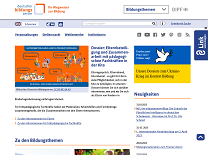Libraries and Education Reform in Tajikistan – english information https://www.bildungsserver.de/bisy.html?a=5487&spr=1
The author of this full text underlines the significant role of education, libraries and information services in the Central Asian region. She refers to the civil war and the social transformations in the 1990s in Tajikistan and outlines the development of the education system and the libraries.

